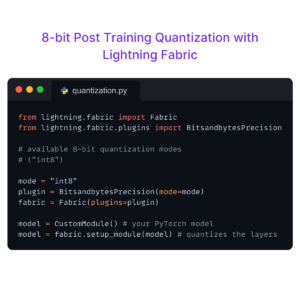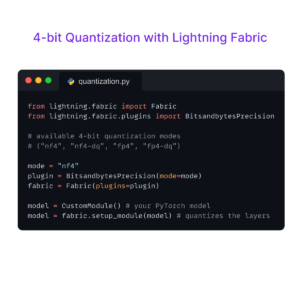Researchers are testing the limits of language models and datasets while diffusion models continue to evolve. You can now deploy Stable Diffusion 2.0 on your own servers and have a surprisingly human conversation with OpenAI’s ChatGPT. We’ve had an awesome time at NeurIPS and are giving the TLDR on our favorite papers from the conference. Let’s dive in!
Research Highlights: NeurIPS 2022 Edition
13 Outstanding Papers, 2 in the Datasets & Benchmarks category, and a Test of Time paper were recognized with coveted awards this week by the NeurIPS 2022 organizing committee. NVIDIA research scientist Jim Fan wrote a fantastic thread summarizing all of these papers, including his own!
Here are the 5 catching our interest:
🏆 Deepmind’s Chinchilla, a new 70B language model that claims to outperform much bigger language models. This research shows that most LLMs in need of more of data and typically under-trained.
🏆 Google’s Imagen, a large text-to-image and super-resolution diffusion model that generates beautiful photorealistic images. This model uses a stronger text encoder than DALLE2 (T5-XXL) and was trained on enormous text corpus.
🏆 Allen Institute for AI’s ProcTHOR, a simulator for training embodied agents that procedurally creates a wide range of interactive, adaptable, and physics-capable homes.
🏆 NVIDIA’s MineDojo, an open framework to help the community develop generally capable agents. MineDojo features a simulator suite based on Minecraft, a massive internet database (YouTube, Wiki, Reddit), and a foundation model recipe for agents.
🏆 LAION’s LAION-5B, an open dataset that gave birth to Stable Diffusion made up of 5.85 billion CLIP-filtered image-text pairs to democratize multimodal foundation models.
ML Engineering Highlights
🗣️ OpenAI introduced ChatGPT, a model that aims for a more human and conversational interaction online. ChatGPT can respond to follow-up inquiries, acknowledge mistakes, refute unfounded assumptions, and reject inappropriate requests with a dialogue format. Their model was trained using using Reinforcement Learning from Human Feedback (RLHF), similar to its sibling model, InstructGPT.
📄 AWS unveiled Amazon DataZone at its re:Invent conference, a new data management service that can assist businesses in cataloguing, discovering, sharing, and managing their data. By leveraging machine learning, the service seeks to assist businesses in creating these data catalogs and creating the metadata necessary to make the data searchable.
🚢 SeeByte, the current leader in software for uncrewed maritime systems, has been awarded an extended contract to support the US Navy’s autonomous systems and machine learning capabilities. SeeByte will deliver engineering, technical support, training, and simulation services under this contract which has a maximum 10-year duration and a total potential value of $87M.
Open Source Highlights
🤖 Petoi, a toy company that makes robots for kids, released a programmable robot dog named Bittle. Designed for ages 14+, Bittle comes programmed with a few starter tricks like walk and trot and has an open source platform that allows users to add a Raspberry Pi or attach Grove sensors to extend the robot’s capabilities.
🔒 Google open sourced KataOS, an operating system developed to control the security and privacy of data acquired by smart devices. KataOS seeks to provide a platform that protects user’s privacy and is implemented almost entirely in Rust, which Google argues provides a strong starting point for software security by eliminating entire classes of bugs, such as off-by-one errors and buffer overflows.
Lightning AI Highlights
⚡ Our team has been having a blast at NeurIPS this week in New Orleans! From our happy hour to the packed social where we discussed moving from academia to industry– we have loved connecting with our community in-person once again. Thanks to all those that stopped by our booth, grabbed swag and said hi!

⚡ We released our Stable Diffusion (2.0) Lightning component that lets you run your own Stable Diffusion 2.0 server in ~5 min in just 4 easy steps that our lead educator Sebastian Raschka walks through in this thread.
Don’t Miss the Submission Deadline
- IJCAI 2023: the 32nd International Joint Conference on Artificial Intelligence. Aug 19-25th 2023. (Cape Town, South Africa) Abstract due: January 11, 2023. Full paper submission deadline: January 18, 2023
- ACL 2023: The 61st Annual Meeting of the Association for Computational Linguistics. July 9-14 2023 (Toronto, Canada). Full paper submission deadline: January 20, 2023
- ICML 2023: Fortieth International Conference on Machine Learning. Jul 23-29 (Honolulu, Hawaii). Full paper submission deadline: January 26, 2023 08:00 PM UTC
- IROS 2023 :International Conference on Intelligent Robots and Systems. Oct 1 – 5, 2023 (Detroit, Michigan). Full paper submission deadline: March 1, 2023
- ICCV 2023: International Conference on Computer Vision. Oct 2 – 6, 2023. (Paris, France). 1. Full paper submission deadline: March 8, 2023 23:59 GMT
Upcoming Conferences
- PyTorch Conference: Brings together leading academics, researchers and developers from the Machine Learning community to learn more about software releases on PyTorch. Dec 2, 2022 (New Orleans, Louisiana)

